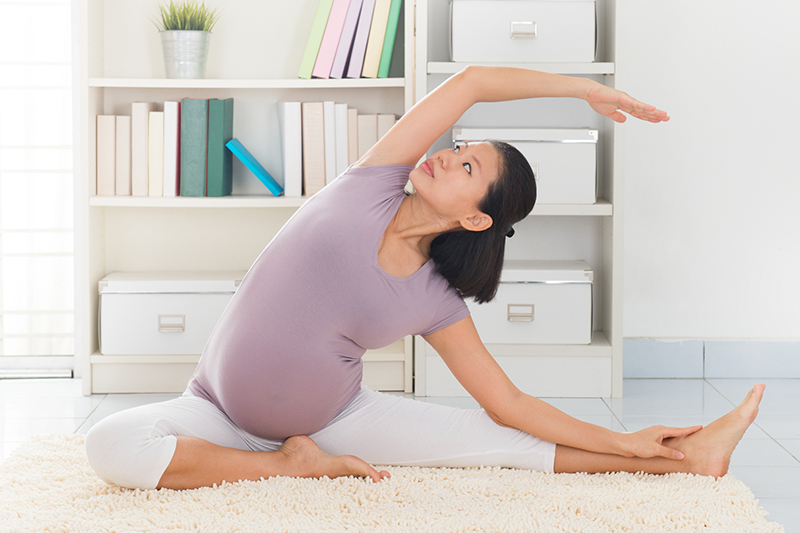Families For Life | Exercising Safely in Trimester 2

If you've been exercising since your first trimester, do continue this good habit into your second trimester. But take note of these tips to ensure you're safe and comfortable while keeping fit.
You're in week 14 now and if you've been keeping up an exercise routine, congratulations on a great job! If you're usually non-active and you're just starting to exercise now, do start slowly with 15 minutes of light exercise, like walking. You can gradually increase this to up to 30 minutes a day, for five to seven days a week. However, be aware that there are some medical conditions that might prevent you from exercising, including some heart or lung diseases, pregnancy-induced hypertension and chronic bronchitis. If you have any concerns at all, do see your doctor.
How hard should I be exercising in my second trimester?
It's important not to strain yourself. As a guide, you should be able to speak in complete sentences while exercising, even if you're feeling slightly breathless.
What exercises should I avoid?
This advice remains the same from trimester one. Don't participate in any contact sport, competitive sport, or activities that involve jumping, jarring motions or demand rapid changes of direction, such as tennis and squash. Avoid high-impact exercises that might cause joint pain, such as Zumba and running.
What should I be mindful of when exercising?
Adjustments in your weight distribution due to your growing tummy will likely change your posture. Keep your posture upright and distribute your weight evenly between your feet while exercising. Avoid extreme postures that put excessive stress on certain body parts or joints, for example, in more advanced yoga poses. Don't use weights that are too heavy as they might cause back pain or pelvic floor dysfunction issues such as incontinence. You should also avoid lying flat on your back or tummy.
When should I stop exercising?
Be aware of your current fitness levels and don't work out beyond your limit. Take a break and rest frequently if you're feeling breathless. Stop all exercises immediately and seek medical help if you experience symptoms like vaginal bleeding, nausea, vomiting, feeling light-headed, strong pain in the back or pelvis, reduced baby movement, chest pain or amniotic fluid leakage.
Explore more
- Being fit when pregnant
- Exercising safely in your first trimester - 5 questions answered
- Third trimester workout tips
- Pregnancy exercises
By Catherina CHUA Bee Hong Senior Principal Physiotherapist, Elizabeth CHAN Jiahui Principal Physiotherapist, KK Women's and Children's Hospital
Sources:
The New Art and Science of Pregnancy and Childbirth 2008, World Scientific
Healthy Start for your Pregnancy 2012, Health Promotion Board Singapore
Copyright © 2016 HealthHub.sg. All rights reserved.